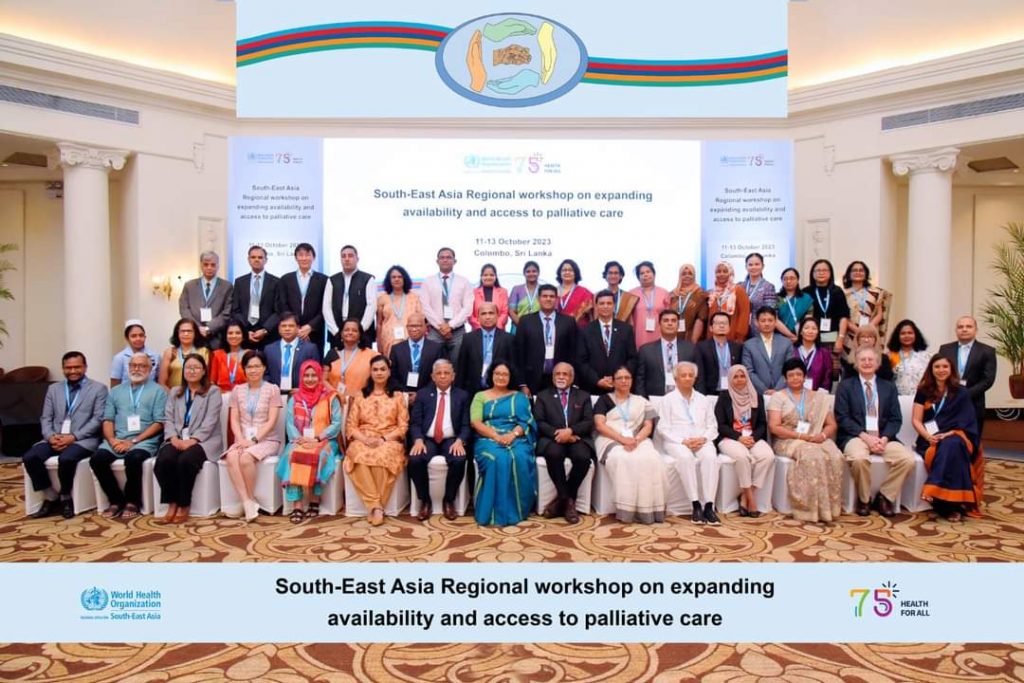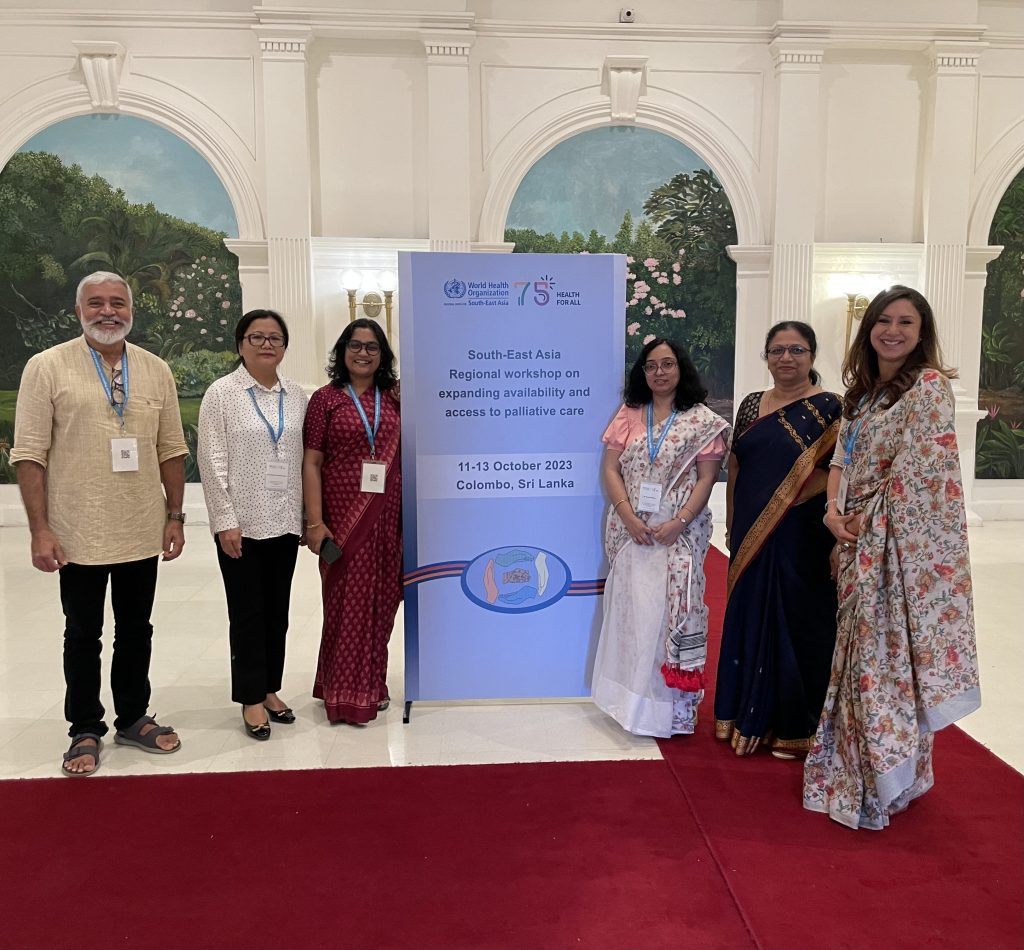WHO SEARO workshop on expanding availability and access to palliative care
Smriti Rana (Head – Strategic Programs & Partnerships, Pallium India) writes:
An estimated ten million individuals in the South-East Asian region require palliative care. Non Communicable diseases like stroke and cancer account for over 69% of the requirement for palliative care. Palliative care will likely become more and more necessary as the population ages and the burden of non-communicable diseases is predicted to increase. Early palliative care delivery to those in need lowers the number of needless hospital admissions.
Less than half of the nations in the Southeast Asian region indicated that palliative care was “generally available” in the World Health Organization (WHO) NCD country capacity survey conducted in 2021. The availability of services in the region varies significantly between nations, according to a 2020 survey.
Only 14% of patients worldwide are thought to receive the palliative care they require; in order for countries to meet Sustainable Development Goal 3, which aims to attain universal health coverage, palliative care services must be strengthened and made available. Palliative care must be made widely available and easily accessible to those who require it.
Recognising the above, The WHO SEARO (South East Asia Regional Office) hosted a workshop in Colombo, Sri Lanka, from 11-13 October, 2023 in an attempt to assist nations in making palliative care a top priority in their policies and to improve their ability to develop and carry out palliative care programmes.
The WHO South-East Asia Regional workshop on expanding availability and access to palliative care was attended by officials from health ministries of 7 countries in the region and representatives from 7 WHO country offices. In addition, 10 experts were invited to contribute to the proceedings. Smriti Rana from Pallium India and Dr. Suresh Kumar from Institute of Palliative Medicine, Kozhikode were amongst the experts.
7 overarching sessions were conducted across 3 days, which included the topics:
- Global experience and regional situation of palliative care
- Multisectoral partnership in palliative care
- Progress in palliative care in countries
- Key elements in palliative care service delivery
- Models of care and innovations in palliative care
- Demystifying death and dying
- Country roadmap for expanding availability and access to palliative care
Participants also visited existing centers in and around Colombo and observed work being done by teams in Sri Lanka.
The countries who attended the workshop renewed their commitments to make palliative care a priority and to collaborate with one another to achieve better outcomes for the region.
The full report of the workshop may be accessed at: https://www.who.int/southeastasia/publications/i/item/9789290211082








